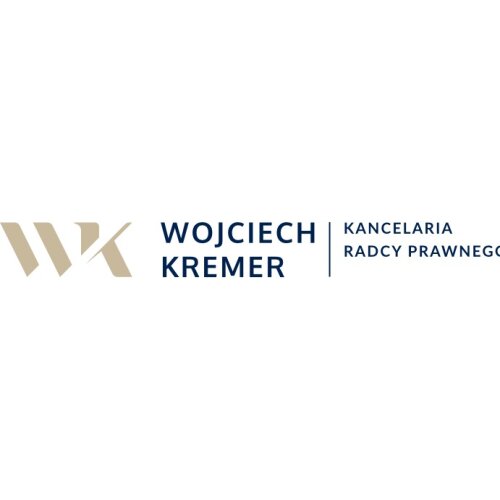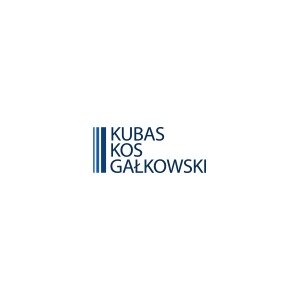Best Renewable & Alternative Energy Lawyers in Krakow
Share your needs with us, get contacted by law firms.
Free. Takes 2 min.
List of the best lawyers in Krakow, Poland
About Renewable & Alternative Energy Law in Krakow, Poland
Krakow, one of Poland's leading cultural and economic centers, has become increasingly committed to renewable and alternative energy initiatives. As Poland integrates more green energy sources to meet European Union climate goals, municipal governments such as Krakow's play a crucial role in shaping energy policy, regulating new technologies, and supporting sustainable urban development. Renewable and alternative energy law in Krakow encompasses the development, installation, financing, and regulation of energy sources such as solar, wind, biogas, geothermal, and hydroelectric power. These laws aim to balance the need for economic growth, environmental protection, and reliable energy supply.
Why You May Need a Lawyer
Legal assistance can be vital when dealing with renewable and alternative energy matters in Krakow. Individuals and businesses may require a lawyer for a variety of reasons, including:
- Securing permits for installing solar panels or wind turbines on residential or commercial property
- Navigating environmental impact assessments and compliance with local zoning laws
- Negotiating and drafting energy supply contracts or power purchase agreements
- Participating in government subsidy or incentive programs
- Resolving disputes with local authorities or energy companies
- Protecting intellectual property for new green technologies
- Advising on EU and Polish renewable energy regulations and funding opportunities
- Supporting community-based renewable energy projects
- Ensuring compliance with safety and building standards for renewable installations
A lawyer experienced in renewable and alternative energy law ensures these matters are handled efficiently and in full compliance with all applicable regulations.
Local Laws Overview
Poland’s renewable energy sector is primarily regulated by the national Renewable Energy Sources Act (Ustawa o odnawialnych źródłach energii), which incorporates EU directives into Polish law. In Krakow, local ordinances and administrative procedures further impact the development of green energy. Key areas of local law include:
- Permitting and Zoning: Local authorities in Krakow oversee planning permissions for renewable installations, solar farms, and wind turbines.
- Building Regulations: Strict requirements ensure the safety and integration of renewable energy technologies with existing infrastructure.
- Environmental Protection: Projects must comply with environmental impact assessment (EIA) rules, especially in protected areas or areas of historical significance.
- Incentives and Subsidies: Grants, tax breaks, and feed-in tariffs are available through both national programs and Krakow’s local initiatives to promote the transition to clean energy.
- Connection to the Grid: Specific rules govern how new renewable sources are connected to municipal or national electricity grids.
- Emissions and Air Quality: Krakow has implemented special measures, such as restrictions on coal burning, to address air pollution and encourage the use of renewables.
Understanding these laws is crucial for anyone looking to invest in, develop, or operate renewable energy projects in Krakow.
Frequently Asked Questions
What counts as renewable or alternative energy in Krakow?
Renewable or alternative energy includes solar, wind, water (hydropower), geothermal, biomass, and biogas systems. It also covers any technology that generates electricity, heat, or fuel from sustainable and non-fossil sources.
Do I need a permit to install solar panels on my home?
Yes, most residential and commercial solar installations in Krakow require a building permit and must comply with zoning rules. Specific exemptions may apply to small micro-installations.
Are there government subsidies for installing renewable energy systems?
Yes, both national and local programs provide financial incentives, such as subsidies, grants, and feed-in tariffs for individuals and businesses investing in renewable energy.
What legal risks exist when developing a renewable energy project?
Legal risks include failing to obtain proper permits, violating land use or environmental laws, not meeting building standards, or entering into unfavorable contracts.
Is it possible to sell surplus energy back to the grid?
Yes, there are legal pathways for self-generators to sell excess electricity back to the grid, but specific technical, contractual, and registration requirements apply.
How are disputes over renewable energy projects resolved?
Disputes may be settled through negotiation, mediation, or litigation in administrative or civil courts. Early legal advice helps prevent or resolve conflicts efficiently.
Do new buildings have to include renewable energy solutions?
Polish and EU regulations encourage the integration of renewables in new constructions. Energy efficiency and the use of clean energy technologies are often prerequisites for building approval in Krakow.
What are the main environmental requirements for renewable projects?
Projects often require an environmental impact assessment and must demonstrate minimal harm to the environment, especially within Krakow’s historically sensitive or protected areas.
What should I include in a renewable energy contract?
Contracts should specify project details, timelines, technical standards, pricing, liability, dispute resolution, and regulatory compliance to protect all parties.
Where can I get reliable updates about changes in renewable energy law?
National and municipal government websites, industry associations, legal publications, and advice from qualified lawyers are primary sources for up-to-date information.
Additional Resources
If you need legal advice or further guidance regarding renewable and alternative energy in Krakow, the following resources may be helpful:
- Ministry of Climate and Environment of Poland, supporting renewable energy policies
- Urząd Miasta Krakowa (Krakow City Office) for local permits and administrative procedures
- General Directorate for Environmental Protection (GDOŚ) for environmental impact assessments
- National Fund for Environmental Protection and Water Management (NFOSiGW) for funding programs
- Energy Regulatory Office (URE) for licensing and market rules
- Polish Alternative Fuels Association for industry updates
- Local environmental NGOs and consultancies offering support with community-based energy initiatives
Next Steps
If you are considering investing in or developing a renewable energy project in Krakow, or if you require assistance with regulatory, contractual, or environmental matters, your next steps should include:
- Gather detailed information about your project or issue
- Consult the relevant municipal and national authorities for application procedures and requirements
- Contact a legal specialist with experience in renewable and alternative energy law in Poland
- Prepare all necessary documents, permissions, and technical plans
- Stay informed about changes in local and national laws affecting renewable energy
Securing professional legal guidance early on can help you navigate the regulatory landscape, avoid common pitfalls, and achieve your renewable energy goals responsibly and efficiently in Krakow, Poland.
Lawzana helps you find the best lawyers and law firms in Krakow through a curated and pre-screened list of qualified legal professionals. Our platform offers rankings and detailed profiles of attorneys and law firms, allowing you to compare based on practice areas, including Renewable & Alternative Energy, experience, and client feedback.
Each profile includes a description of the firm's areas of practice, client reviews, team members and partners, year of establishment, spoken languages, office locations, contact information, social media presence, and any published articles or resources. Most firms on our platform speak English and are experienced in both local and international legal matters.
Get a quote from top-rated law firms in Krakow, Poland — quickly, securely, and without unnecessary hassle.
Disclaimer:
The information provided on this page is for general informational purposes only and does not constitute legal advice. While we strive to ensure the accuracy and relevance of the content, legal information may change over time, and interpretations of the law can vary. You should always consult with a qualified legal professional for advice specific to your situation.
We disclaim all liability for actions taken or not taken based on the content of this page. If you believe any information is incorrect or outdated, please contact us, and we will review and update it where appropriate.













